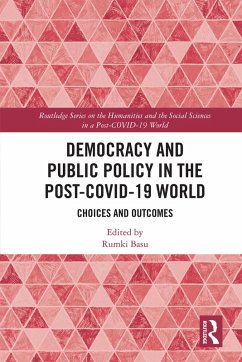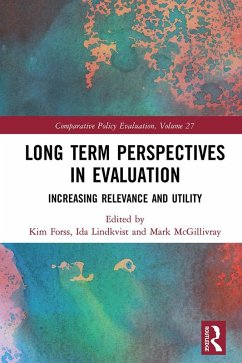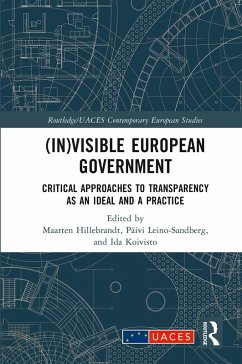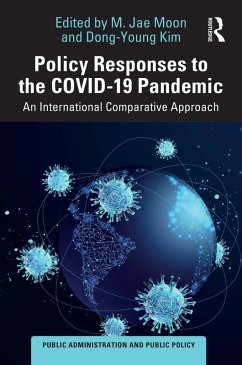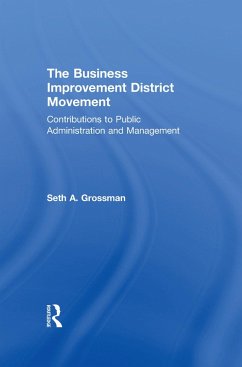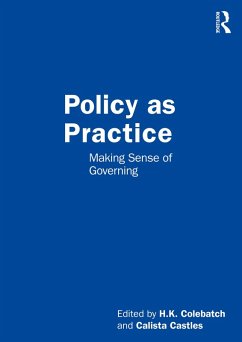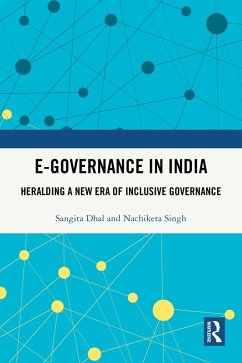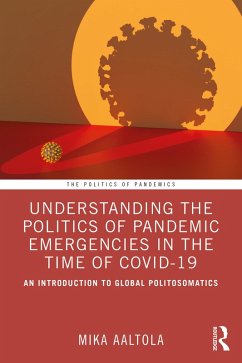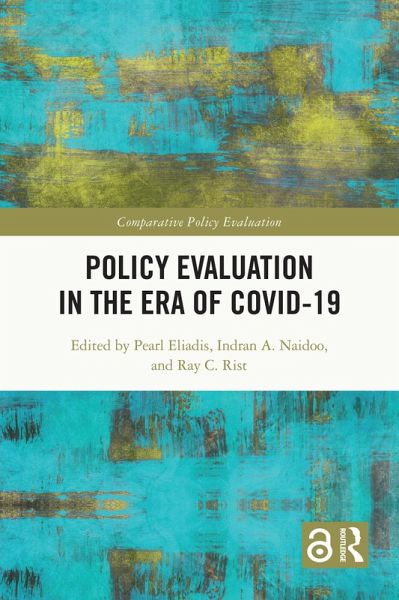
Policy Evaluation in the Era of COVID-19 (eBook, ePUB)

PAYBACK Punkte
0 °P sammeln!
Did evaluation meet the challenges of the COVID-19 crisis? How were evaluation practices, architectures, and values affected? Policy Evaluation in the Era of COVID-19 is the first to offer a broad canvas that explores government responses and ideas to tackle the challenges that evaluation practice faces in preparing for the next global crisis. Practitioners and established academic experts in the field of policy evaluation present a sophisticated synthesis of institutional, national, and disciplinary perspectives, with insights drawn from developments in Australia, Canada and the UK, as well a...
Did evaluation meet the challenges of the COVID-19 crisis? How were evaluation practices, architectures, and values affected? Policy Evaluation in the Era of COVID-19 is the first to offer a broad canvas that explores government responses and ideas to tackle the challenges that evaluation practice faces in preparing for the next global crisis. Practitioners and established academic experts in the field of policy evaluation present a sophisticated synthesis of institutional, national, and disciplinary perspectives, with insights drawn from developments in Australia, Canada and the UK, as well as the UN.
Contributors examine the impacts of evaluation on socioeconomic recovery planning, government innovations in pivoting internal operations to address the crisis, and the role of parliamentary and audit institutions during the pandemic. Chapters also example the Sustainable Development Goals, and the inadequacy of human rights-based approaches in evaluation, while examining the imperative proposed by some authors that it is time that we take seriously the call for substantial transformation.
Written in a clear and accessible style, Policy Evaluation in the Era of COVID-19 offers a much-needed insight on the role evaluation played during this unique and critical juncture in history.
The Open Access version of this book, available at https://www.taylorfrancis.com/books/oa-edit/10.4324/9781003376316, has been made available under a Creative Commons Attribution-Non Commercial-No Derivatives 4.0 license.
Contributors examine the impacts of evaluation on socioeconomic recovery planning, government innovations in pivoting internal operations to address the crisis, and the role of parliamentary and audit institutions during the pandemic. Chapters also example the Sustainable Development Goals, and the inadequacy of human rights-based approaches in evaluation, while examining the imperative proposed by some authors that it is time that we take seriously the call for substantial transformation.
Written in a clear and accessible style, Policy Evaluation in the Era of COVID-19 offers a much-needed insight on the role evaluation played during this unique and critical juncture in history.
The Open Access version of this book, available at https://www.taylorfrancis.com/books/oa-edit/10.4324/9781003376316, has been made available under a Creative Commons Attribution-Non Commercial-No Derivatives 4.0 license.
Dieser Download kann aus rechtlichen Gründen nur mit Rechnungsadresse in A, B, BG, CY, CZ, D, DK, EW, E, FIN, F, GR, HR, H, IRL, I, LT, L, LR, M, NL, PL, P, R, S, SLO, SK ausgeliefert werden.



